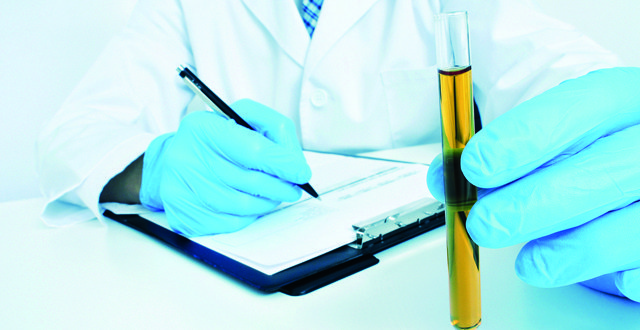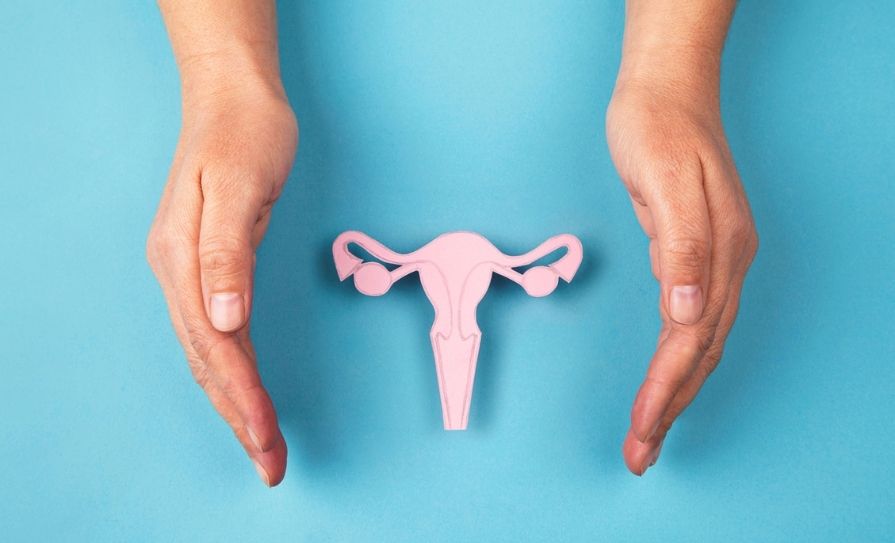Ms Clare O’Connell and Mr Peter E Lonergan report on the highlights of the 2019 JFIGCC in Dublin
The John Fitzpatrick Irish Genitourinary Cancer Conference (JFIGCC) is now in its fifth year, and attracts world leaders in urological oncology. Internationally-renowned faculty from Canada, the US, Sweden, France, the UK and Ireland delivered updates on the latest findings on the diagnosis and treatment of prostate, bladder and kidney cancer at this year’s conference, which took place on 4 and 5 April in Dublin.
The conference is dedicated to the late Prof John Fitzpatrick (1948-2014), Professor Emeritus of Surgery, University College Dublin, Consultant Urologist and Chair of the Department of Surgery at the Mater Misericordiae University Hospital in Dublin. Prof Fitzpatrick was a giant in Irish urology, and known worldwide as a premier surgeon and for his contributions to urological research.
Prostate cancer
A strong focus on prostate cancer continued this year, with three full sessions dedicated to all aspects of the disease, including active surveillance, prostate cancer surgery, chemotherapy and targeted molecular therapies. Session one was chaired by Prof Thomas Lynch, Consultant Urologist, and Prof Stephen Finn, Consultant Histopathologist, both from St James’s Hospital, Dublin, and began with a talk by Prof John Davis from MD Anderson Cancer Centre in Houston, Texas, US, on active surveillance for prostate cancer. Active surveillance is now widely accepted as a safe and appropriate management strategy for low-risk prostate cancer, and the talk focused on the shared decision-making process between patient and doctor and the rationalisation of investigations, depending on risk category.
Dr Netty Kinsella, uro-oncology nurse-consultant from the Royal Marsden Hospital in London, shared insights from her PhD research on decision-making in active surveillance for prostate cancer. The 10-to-15 year mortality rate for active surveillance is 0.03-to-5.7 per cent, making it a safe management strategy without the associated side-effects of radical treatment. Dr Kinsella’s research focuses on determining why men drop-out of active surveillance programmes in the absence of clinical progression, and defining the barriers and facilitators in choosing active surveillance.
Prof Alan Partin of Johns Hopkins in Baltimore, US, described the evolution of nomograms for predicting prostate cancer risk, including the Partin Tables that he developed in 1993. Nomograms allow urologists to determine a patient’s risk, and aid in the shared decision-making process when making decisions regarding prostate cancer treatment.
Prof Anders Bjartell of Lund University in Malmö, Sweden, reviewed the relevant molecular pathways in prostate cancer. The identification of gene mutations in prostate cancer, such as the androgen receptor and DNA repair genes, will lead to the development of novel targeted therapies and a greater understanding of drug resistance in prostate cancer.
Mr David Galvin from the Mater Misericordiae and St Vincent’s University Hospitals closed the first day of the meeting with a report from the Irish Prostate Cancer Outcomes Research group (IPCOR). IPCOR is a nationwide prostate cancer registry that captures high-quality data from men newly diagnosed with prostate cancer. One of the key findings is that 43 per cent of Irish men are now getting an MRI prior to prostate biopsy and is increasing, and this paradigm shift in prostate cancer diagnosis is in line with emerging international best practice. However, men with health insurance are three times more likely to get a pre-biopsy MRI compared to men without health insurance.
Day two
The second day of the conference began with a further prostate cancer session, chaired by Mr Paddy O’Malley, Consultant Urologist at University Hospital Galway, and Dr Alina Mihai, Consultant Radiation Oncologist at Beacon Hospital. Mr Declan Cahill from the Royal Marsden Hospital in London gave an excellent talk on continuous process improvement in robotic prostatectomy. There has been widespread adoption of robotic-assisted surgery in urology over the last 20 years, and Mr Cahill shared insights into his continuous efforts to improve the technical aspects of robotic assisted radical prostatectomy and improving the patient experience.
Prof Nick James from the University of Birmingham, UK, presented the latest findings from the STAMPEDE trial. This multi-arm multi-institutional randomised control trial for advanced or metastatic prostate cancer has recruited over 10,000 patients, in 10 different trial arms, comparing hormonal therapy with or without radiation and the addition of other treatment interventions such as docetaxel, abiraterone, metformin, and celecoxib. An important finding from this trial is that men with a low metastatic burden had better overall survival with radiation to the primary tumour in addition to hormonal therapy than those who had hormonal therapy only.
Prof Heather Payne from University College London reviewed the latest trials in non-metastatic, castrate-resistant prostate cancer, which include the SPARTAN, PROSPER and ARAMIS trials. High-risk, non-metastatic, castrate-resistant prostate cancer can rapidly develop to metastatic disease, and newer agents such as enzalutamide and darolutamide are emerging treatment strategies for these patients.
Dr Jervoise Andreyev, Consultant Gastroenterologist from Lincoln County Hospital, is one of a small number of ‘onco-gastroenterologists’ specialising in diagnosis and management of gastrointestinal (GI) tract toxicities arising from cancer treatment. He reported that 40-to-60 per cent of patients who have undergone pelvic radiotherapy experience GI side-effects, including diarrhoea, faecal urgency and abdominal pain, and pre-existing bowel dysfunction increases the risk of chronic GI issues post-treatment. These symptoms can have a significant impact on quality of life and require prompt diagnosis and careful treatment.
Ms Mary Cremin, prostate cancer clinical nurse specialist from University Hospital Limerick, presented the results from the Irish arm of the international Men and Sexual Health-Prostate Cancer Study (MaSH-PC). This study aims to gain insight in the help-seeking patterns of men with prostate cancer with regard to sexual side-effects of treatment. One-in-three men have concerns or unmet needs around their sexual health after prostate cancer treatment, and they are often reluctant to seek help and frequently discontinue treatment because of these issues.
The third prostate cancer session was chaired by Mr Arun Thomas, Consultant Urologist from Tallaght University Hospital, and Dr Austin Duffy, Medical Oncologist from the Mater Misericordiae University Hospital, Dublin. Prof John Davis from the MD Andersen Cancer Centre in Houston, Texas, began the session by reviewing the role of pelvic lymphadenectomy in prostate cancer. There is debate over whether to perform standard or extended lymphadenectomy and determining which men will benefit from lymphadenectomy.
The remainder of the session focused on molecular and translational research. Prof Catriona O’Driscoll of University College Cork gave a fascinating lecture on micro-RNA therapies for prostate cancer. This is a promising field in translational medicine, and one in which Irish researchers are making significant contributions.
Dr David Nanus, Medical Oncologist and Chief of the Division of Haematology and Oncology at Weill Cornell in New York, presented data on prostate-specific membrane antigen (PSMA)-targeted therapy for prostate cancer.
This emerging therapy targets prostate cancer cells using monoclonal antibodies and may be a promising strategy for patients with metastatic prostate cancer.
Dr Ravi Madan from the National Cancer Institute in Bethesda gave a lecture on strategies to improve immune responsiveness in the prostate cancer tumour microenvironment, including exciting research areas such as tumour vaccines and immunocytokine therapy.
Bladder cancer
The second session of the conference was dedicated to the discussion of bladder cancer and was chaired by Mr Richard Power, Consultant Urologist at Beaumont Hospital, and Dr Emmet Jordan, Consultant Medical Oncologist from University Hospital Waterford. Dr John Srigley, Consultant Histopathologist from the University of Toronto, Canada, gave an overview on the pathology and staging of invasive bladder cancer, emphasising the importance of recognising variant histology, which has a worse prognosis.
Prof Thierry Lebret from Hôpital Foch in Paris, France, shared findings from the French COBLAnCE Cohort Study. This is a large study enrolling patients with newly-diagnosed bladder cancer that hopes to provide insight into the genetic and environmental factors that influence disease prognosis.
A leading figure in urologic oncology research, Dr Cora Sternberg, Medical Oncologist at Weill Cornell in New York and Clinical Director of the Englander Institute for Precision Medicine, gave a talk on immunotherapy for advanced bladder cancer, highlighting the recent advances in this area, after a period of 30 years with minimal novel drug developments. Since 2016, five new immunotherapeutic agents have been approved for advanced bladder cancer, and represent a promising treatment modality for patients who are ineligible for standard chemotherapy. These drugs may also one day play a role in perioperative therapy, as outlined by Dr Jonathan Rosenberg, Consultant Medical Oncologist from Memorial Sloan Kettering Cancer Centre in New York. Neo-adjuvant cisplatin-based chemotherapy confers a survival benefit in patients undergoing radical cystectomy, but a proportion of patients are ineligible for cisplatin, usually due to poor renal function. Immunotherapy may provide an alternative neo-adjuvant treatment regime for these patients, but it comes at a significant financial cost.
Kidney cancer
The middle session on the second day of the conference was dedicated to kidney cancer, and chaired by Dr Niall Swan, Consultant Histopathologist at St Vincent’s University Hospital, and Dr Petra Martin, Consultant Medical Oncologist from the Midlands Regional Hospital, Tullamore. The session began with Dr Robert Flanigan from Loyola University Medical Centre in Chicago and current President of the American Urological Association, giving an insight into the evidence for management of locally-advanced and metastatic renal cell carcinoma. He published results from the SWOG trial in 2001, reporting a survival advantage for patients who undergo nephrectomy for renal cancers that have already metastasised. The role of cytoreductive nephrectomy in the modern era has been heavily debated, and the discussion is far from over.
Dr John Srigley gave an informative lecture on percutaneous biopsy of small renal masses and its use in decision-making in recommending surveillance or active treatment for renal lesions.
Prof Ray McDermott, Consultant Medical Oncologist in St Vincent’s and Tallaght University Hospitals, gave an update on the evidence for strategies in metastatic renal cell carcinoma. Prof McDermott established the Clinical Trials Unit at Tallaght University Hospital in 2005, where 10 per cent of cancer patients are now enrolled in a clinical trial, which is twice the national average. Irish patients continue to have access to leading international clinical trials for urological cancers, making for improved outcomes for these patients.
The session closed with Dr Derek Power from Cork University Hospital speaking on the toxicity of immunotherapy for renal cancer. While these drugs show promising results for a wide variety of cancers, the side-effect profile should not be underestimated.
The meeting was a huge success, and credit is due to the organisers, Prof John McCaffrey and Mr Kiaran O’Malley of the Mater Misericordiae University Hospital, Dr Michael Maher and Dr Ann Treacy of the Mater Private Hospital, Prof William Watson of University College Dublin and Dr Paul Kelly of Cork University Hospital.
Once again, the calibre of speakers from around the world reflected Ireland’s strong place in the international urological community, and was a fitting tribute to the memory of Prof John Fitzpatrick.













Leave a Reply
You must be logged in to post a comment.